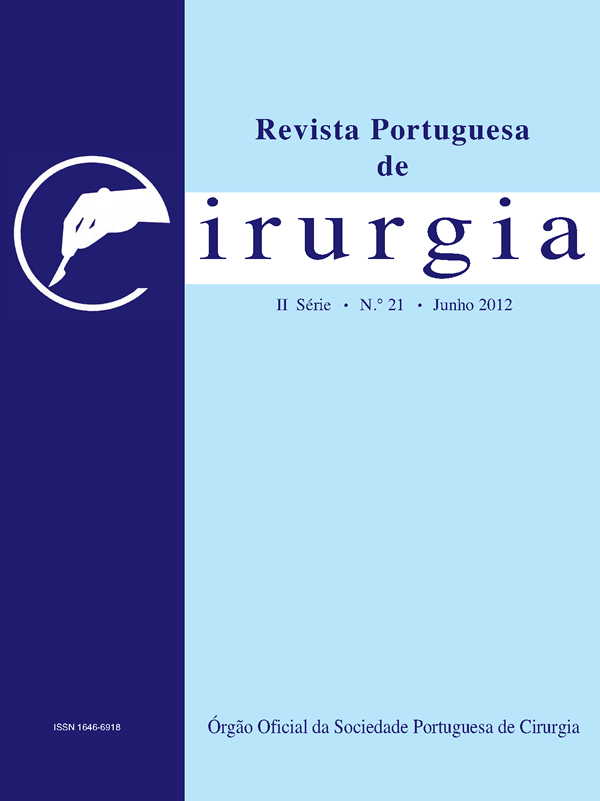Damage control surgery in trauma patients: criteria for management of patients based on the underlying pathophysiology
Abstract
Hypothermia, coagulopathy and metabolic acidosis are at serious risk to develop in severe trauma patients. These metabolic derange- ments known as lethal triad contribute to an increase in mortality rate in these patients. Damage control surgery emerged as an alter- native, with a positive impact on survival, to definitive and prolonged procedures which deplete the patient ́s physiological reserves leading inexorably to a vicious cycle and death. The timing of damage control surgery is crucial, because after the establishment of the lethal triad the outcome of the procedure is severely worsened. Nowadays, the decision is frequently delayed to last resort, when phy- siological derangements are already present. Therefore formal guidelines for its early application are necessary in order to avoid delays and avoidable deaths. Selection criteria for damage control surgery are highly controversial, varying substantially in the literature. The purpose of this article is therefore to revise the selection criteria for damage control surgery proposed in the literature, justified on the underlying pathophysiology of trauma. Despite all controversy, an improvement in patient outcome will emerge of the clarification of criteria, as well as of appropriate timing, to perform damage control surgery.
Keywords: "blood coagulation disorders"[MeSH Terms]; "acidosis"[MeSH Terms]; "hypothermia"[MeSH Terms]; "intra-abdominal hypertension"[MeSH Terms]; "wounds and injuries"[MeSH Terms]
Downloads
Downloads
Published
Issue
Section
License
Para permitir ao editor a disseminação do trabalho do(s) autor(es) na sua máxima extensão, o(s) autor(es) deverá(ão) assinar uma Declaração de Cedência dos Direitos de Propriedade (Copyright). O acordo de transferência, (Transfer Agreement), transfere a propriedade do artigo do(s) autor(es) para a Sociedade Portuguesa de Cirurgia.
Se o artigo contiver extractos (incluindo ilustrações) de, ou for baseado no todo ou em parte em outros trabalhos com copyright (incluindo, para evitar dúvidas, material de fontes online ou de intranet), o(s) autor(es) tem(êm) de obter, dos proprietários dos respectivos copyrights, autorização escrita para reprodução desses extractos do(s) artigo(s) em todos os territórios e edições e em todos os meios de expressão e línguas. Todas os formulários de autorização devem ser fornecidos aos editores quando da entrega do artigo.



